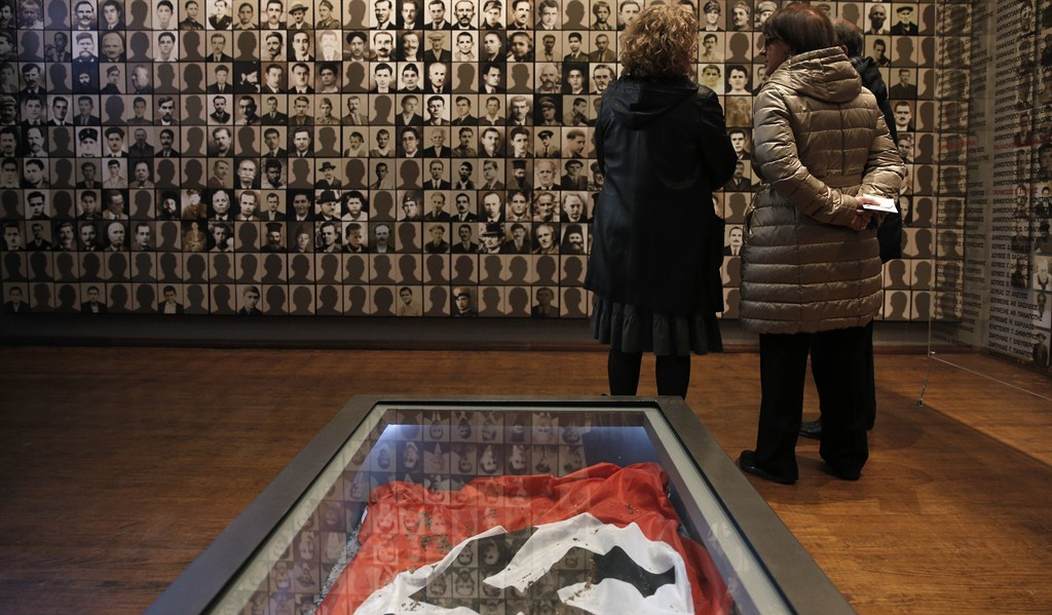Relaxing at home recently, I happened to pick up a copy of the book Schindler’s List, a copy of which has been sitting on my coffee table since I first read the book back in 1996.
Having read the book in its entirety several times, I also occasionally pick it up and browse randomly for inspiration - the story being so rich with anecdotes and vignettes of Jewish resistance to Nazi oppression. The one thing that struck me this time around about the dramatic tale of Oskar Schindler, a German businessman who used his ceramics and cookware factory to disguise his courageous effort to save over a thousand Jews from almost certain death in Nazi concentration camps – was not the fact that Schindler sacrificed so much of his own fortune and risked his own life to save his fellow human beings. The thing that really struck me was in fact that other Germans did so little to prevent the genocide of over six million of their fellow citizens. Though Schindler saved a thousand people and is rightly commended for his act of courage, many other people failed in their duty to stand up for justice and humanity.
How, one wonders, could one of the world’s oldest and most stable democratic republics fall prey to such an autocratic and ultimately barbarian practice as mass slavery and extermination?
In some sense it all came down to economics, the distribution of resources, and the instability that economic panic causes. In Nazi Germany, even wealthy Jews were eventually confined to ‘ghettos’ – basically encircled neighborhoods, from which they were forbidden to emerge except for work. The term ghetto has been somewhat bastardized in the American context as places reserved only for poor people. In Germany under Nazi occupation, the rich and poor alike were lumped together. Jewish wealth was largely confiscated and Jewish companies either taken over by the state, or sold off to private German interests at a fraction of their value.
Recommended
Initially some Jews, it seemed, wanted to try to get along with the system. The more educated and wealthy Jews tried to find allies within the Nazi party, advertising their skills and ‘usefulness’ and often pledging their capital for the German war effort. But as time went on, and Germany’s expansionary plans became ever more expensive, the Faustian bargain did not hold. Even Jews loyal to the Nazi regime were singled out for oppression and expropriation.
As an entrepreneur, I have always believed that controlling one’s economic fortune means controlling one’s destiny. Why wait for the government to do something for you, when with hard work and ingenuity, you can do much, much more for yourself? I firmly believe that my own destiny is up to me. And so, it seems, did many Jewish entrepreneurs in Germany.
Although business thrived in Germany, the conception of national socialism offered a utopic vision that in the end proved to be unsupportable in the absence of freedom and entrepreneurship. Underground economies among the poorer Jews flourished in this environment of social dislocation. Other Jews pooled their resources to create more legitimate economic endeavors, and some indeed thrived despite the declining economic conditions facing the country as a whole. But at the end of the day it was all for naught. Despite their attempt to control their destiny, having been thrown out of the social welfare system, Jews were still targeted, their wealth, freedom and lives stolen from them.
The real lesson here seems to be that at the extremes of socialism lies despotism. Becoming dependent upon government largesse and social welfare imperils us, because it attaches us to a system that is no longer viable for far too long. Entrepreneurship and wealth, while not a panacea, create far more options under conditions of crisis than poverty and dependence.
The welfare state, while well intended, sets the stage for state control over resources. It limits ones political choices, and constrains freedom. Government should really be in the business of defending liberty and upholding the constitutional rule of law. When it expands into other areas of life – education, social welfare, and even scientific investment, it often crowds out better solutions. America at its best is a society that fosters prosperity by protecting freedom, equal justice, freedom of expression, freedom of association. It is not a system of government that attempts to guarantee equal outcomes.
America is a country that shines because it offers individuals the opportunity to control their destiny. Immigrants are attracted to our nation, not because it promises subsidized living, but because people are free to benefit from the fruits of their works, ideas and talents.
Nazi Germany utterly failed for two reasons. Its government, attempting to offer a panacea, actually created horribly unstable society. Secondly, by stifling the freedom and creative efforts of a large part of its population – it deprived itself of the necessary entrepreneurial power it would need to provide benefits for those in true need. We should heed those lessons of history, and make sure America’s list is much bigger than Schindler’s.

























Join the conversation as a VIP Member